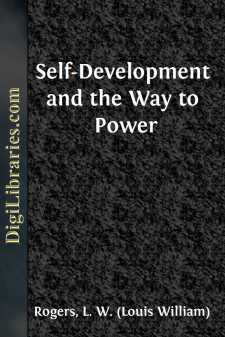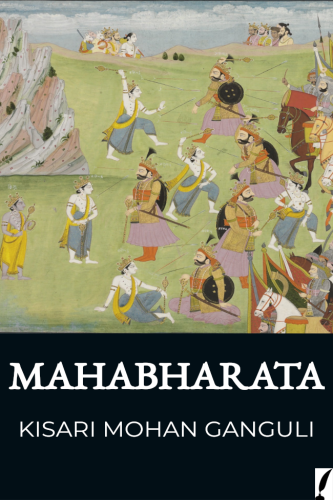Religion
- Agnosticism 2
- Antiquities & Archaeology 21
- Atheism 12
- Biblical Criticism & Interpretation 15
- Biblical Meditations 3
- Biblical Reference 1
- Biblical Studies 11
- Buddhism 8
- Christian Church 52
- Christian Education 5
- Christian Life 26
- Christianity 60
- Cults 2
- Devotional 6
- Eastern 2
- Education 4
- Eschatology 1
- Ethics 3
- General 60
- Gnosticism 1
- Hinduism 15
- History 28
- Holidays 10
- Inspirational 1
- Islam 8
- Judaism 3
- Leadership 1
- Meditations 3
- Monasticism 1
- Mysticism 11
- Philosophy 4
- Prayer 26
- Prayerbooks 5
- Religion & Science 12
- Sermons 54
- Spirituality 53
- Theism 2
- Theology 17
- Theosophy 15
Religion Books
Sort by:
Introduction The last thirty years, though as dates go this is only an approximation, have witnessed a marked development of religious cults and movements largely outside the lines of historic Catholicism and Protestantism. One of these cults is strongly organized and has for twenty years grown more rapidly in proportion than most of the Christian communions. The influence of others, more loosely...
more...
GOD OUR SHEPHERD The twenty-third Psalm seems to break in two at the end of the fourth verse. The first four verses clearly reflect a pastoral scene; the fifth appears to carry us off, without warning, to very different associations. This, however, is only in appearance. The last two verses are as pastoral as the first four. If these show us the shepherd with his sheep upon the pasture, those follow...
more...
by:
Edward Burbidge
THE KING’S HERALD.“On Jordan’s banks the Baptist’s cryAnnounces that the Lord is nigh;Awake and hearken, for he bringsGlad tidings of the King....” When the Saviour of the world was about to enter upon His public ministry, the Jewish nation was startled with the cry, “The Kingdom of Heaven is at hand” (S. Matt. iii. 2). Such was God’s call to His people of old time, to prepare...
more...
Foreword The Evangelization of the World is being accomplished more rapidly than we think. Three mighty movements are constantly at work—Reformation, Heathen Missions and Emigration or Colonization. By the Reformation Europe was evangelized; by Heathen Missions Asia and Africa are being evangelized and by Emigration or Colonization North and South America and Australia have been to a large extent...
more...
Nature of Symbolic Language. Before proceeding with the interpretation of this wonderful book, it will be necessary for us to pause and make inquiry concerning the nature of the language employed in its prophecies and concerning the mode of its interpretation. It will be seen at a glance that it is wholly unlike the common language of life; and it will be useless for us to undertake to ascertain its...
more...
SELF DEVELOPMENT AND THE WAY TO POWER It is the natural right of every human being to be happy—to escape all the miseries of life. Happiness is the normal condition, as natural as the landscapes and the seasons. It is unnatural to suffer and it is only because of our ignorance that we do suffer. Happiness is the product of wisdom. To attain perfect wisdom, to comprehend fully the purpose of life, to...
more...
It is with great pride and reverence that we present the timeless epic, the Mahabharata, translated by Kisari Mohan Ganguli, in this EPUB edition. This monumental work, originally composed in Sanskrit, holds an unparalleled position in the annals of world literature, and Ganguli’s translation is a pivotal contribution that has made this treasure accessible to English-speaking readers around the globe....
more...
THE WITNESS OF THE RESURRECTION‘Declared to be the Son of God with power, ... by the resurrection of the dead.’—ROMANS i. 4 (R. V.).It is a great mistake to treat Paul's writings, and especially this Epistle, as mere theology. They are the transcript of his life's experience. As has been well said, the gospel of Paul is an interpretation of the significance of the life and work of Jesus...
more...
CHAPTER I. THE SECRET WALK WITH GOD (i.). Pastor, for the round of toil See the toiling soul is fed; Shut the chamber, light the oil, Break and eat the Spirit's bread; Life to others would'st thou bring? Live thyself upon thy King. Let me explain in this first sentence that when in these pages I address "my Younger Brethren," I mean brethren in the Christian Ministry in the Church...
more...
The Hebrew Prophecies In the last chapter the opinion was expressed that the first books collected by Nehemiah, when he made up his "library," a century after the Exile, were the writings of the prophets. We studied the historical books first, because they stand first in the Hebrew Bible, and are there named the "Earlier Prophets;" but the probabilities are that the prophetical writings...
more...











